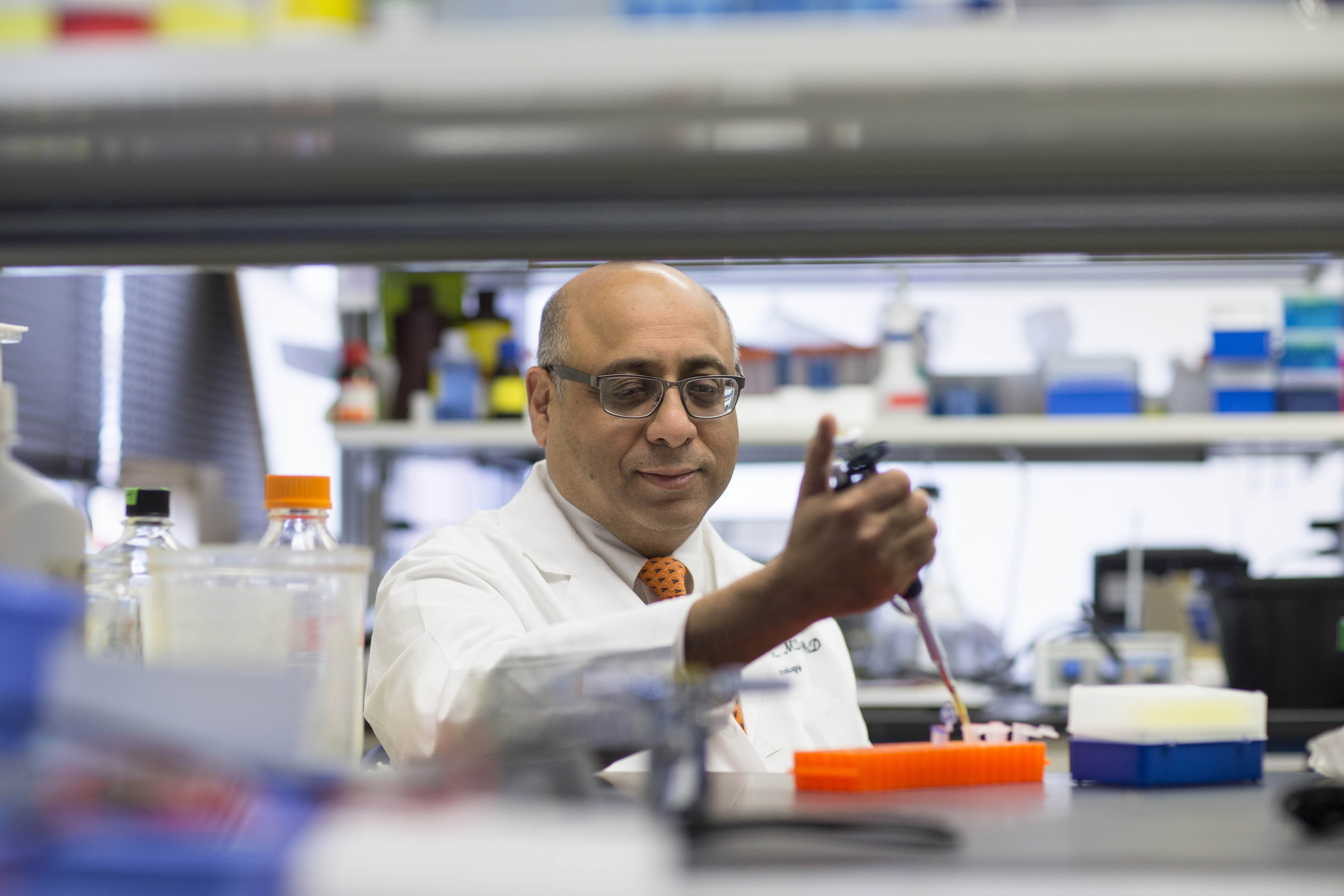Unlocking the Mystery of the Human Mind
When creative minds meet, they come up with new ideas that no one person could think of alone. That’s the premise behind the University’s plan to establish five multidisciplinary institutes—and to tackle some of society’s most difficult and pressing challenges.
This summer, UVA launched its second pan-University institute—UVA Brain.
“The biggest, most important, and most challenging questions and problems society faces cannot be solved within the constraints of any single discipline. Such challenges require big thinking by top scholars who can bring to bear expertise from a variety of areas,” says Thomas Katsouleas, executive vice president and provost of the University.

UVA Brain draws upon talented faculty and students and recent cluster hires in the School of Medicine, the College and Graduate School of Arts & Sciences, the Curry School of Education, the School of Engineering and Applied Science, and the newly created Data Science Institute. Together, these physicians and researchers will develop better methods for understanding the brain; seek new ways to prevent, treat, and cure brain diseases and injury; and teach what they have learned.
“We are building on broad strengths and recent breakthroughs at UVA in several areas related to brain science and education,” explains UVA Brain Director Jaideep Kapur, MD, a world-renown epilepsy physician-scientist. The institute will focus teams in key areas: brain disorders like Alzheimer’s, Parkinson’s, epilepsy, autism, and traumatic brain injury (TBI); neuroimmunology; sensory biology; and integrative neuroscience research.
How will it work? Consider traumatic brain injury, Kapur explains. At UVA, a mechanical engineer studies the impact of injury on the mechanics of the brain. A sports medicine researcher looks to distinguish between minor and serious injuries on the playing field. A neuropsychologist studies TBI’s effects on mental capacity and behavior in order to influence health policy.
“Neuro research has often been performed alone in small labs. When you bring these people together to share what they have learned, we have a much better chance of understanding the impact of these injuries on patients and how best to treat, or even prevent, them in the future,” he says.
In addition, the institute will offer more undergrads a taste of neuroscience research by expanding UVA’s undergraduate science degree program and providing summer fellowships. A new lecture series will also be launched.
REMOVING BARRIERS TO PROGRESS
UVA Brain coincides with recent priorities in brain research established by the federal government and the Commonwealth. In 2013, President Obama launched a 10-year brain research initiative to “revolutionize our understanding of the human mind and uncover new ways to treat, prevent, and cure brain disorders.” Virginia Governor Terry McAuliffe also launched an effort to make Virginia “the brain state,” by organizing and stimulating neuroscience research throughout Virginia’s major research universities. UVA Brain will be a major player in this work.
It’s no coincidence that all these opportunities are converging at one time, explains Kapur. “This is a time of tremendous growth in our knowledge and our technological capabilities. Now we can start answering questions that we didn’t even know to ask a few years ago,” he says.
“We all know someone who has been touched by Alzheimer’s or other neurological diseases. The burden on families is financially, emotionally, and physically daunting. Thanks to the vision and leadership of the University and the Commonwealth, we have the chance to find real solutions that help people.”
